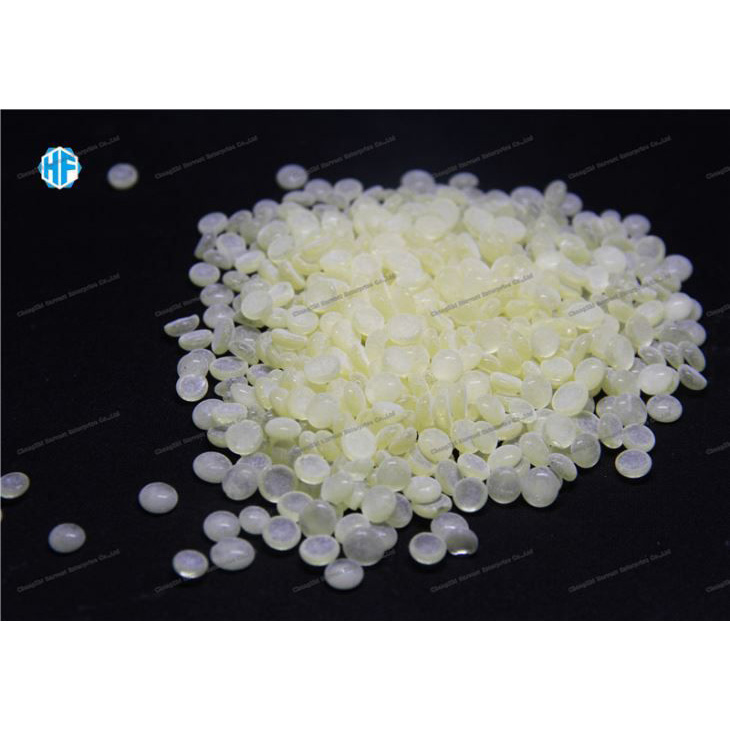What Are Petroleum Resins and Why Are They Essential in Modern Industries?
2024-12-30
Petroleum resins are a crucial yet often overlooked component in a variety of industrial applications, playing an integral role in products we use every day. But what exactly are petroleum resins, and why are they so important in industries ranging from adhesives and coatings to rubber and inks? In this blog, we’ll delve into the world of petroleum resins, exploring their properties, applications, and benefits.
What Are Petroleum Resins?
Petroleum resins are a type of synthetic resin derived from petroleum, primarily through the distillation of petroleum fractions. These resins are typically produced by the polymerization of olefins and other unsaturated hydrocarbons, which are found in the petroleum distillates. They are used to modify the properties of products in various industries, offering enhancements in adhesion, viscosity, and performance.
Petroleum resins can be classified into several categories, including C5, C9, and hydrogenated resins, each of which has different chemical structures and properties. These variations make petroleum resins versatile for a wide range of applications.
Why Are Petroleum Resins Important?
1. Improved Adhesion Properties
One of the most significant benefits of petroleum resins is their ability to improve the adhesion of products, particularly in adhesives and sealants. When added to these materials, petroleum resins enhance their bonding strength, making them more effective for a range of applications, from packaging to construction.
2. Enhanced Viscosity Control
In many industrial formulations, maintaining the right viscosity is key to achieving optimal performance. Petroleum resins are commonly used as viscosity modifiers, particularly in coatings, paints, and inks. They help achieve the desired thickness and flow properties, ensuring smooth application and uniform coverage.
3. Increased Durability and Performance
Petroleum resins contribute to the durability and performance of products, especially in coatings and rubbers. They improve the resistance of these materials to environmental factors such as UV light, heat, and chemicals, enhancing their lifespan and usability in harsh conditions.
4. Cost-Effective Solution
Compared to other resins like rosin or synthetic resins, petroleum resins are often more cost-effective due to the abundance of raw materials and the efficiency of their production process. This makes them an attractive option for manufacturers looking to balance quality and cost.
Where Are Petroleum Resins Used?
Petroleum resins are found in a wide array of industries, contributing to the functionality and performance of various products. Some of the most common applications include:
1. Adhesives and Sealants
The versatility of petroleum resins in improving adhesion makes them a key ingredient in adhesives, including those used in packaging, automotive, and construction industries. They are often blended with other resins to create adhesives that offer better bonding, flexibility, and heat resistance.
2. Coatings and Paints
Petroleum resins are frequently used in paints, coatings, and varnishes to improve the overall performance and durability of the finished product. They provide excellent hardness, weather resistance, and a glossy finish, making them essential for industrial, automotive, and decorative coatings.
3. Printing Inks
Printing inks, including those used in flexographic and gravure printing, rely on petroleum resins to enhance ink flow, pigmentation, and drying speed. They allow for sharp, high-quality prints, making them indispensable in the printing and packaging industries.
4. Rubber and Tires
In the rubber industry, petroleum resins are used to enhance the processability, strength, and elasticity of rubber compounds. They are particularly important in tire manufacturing, where they help improve the performance, durability, and resistance of the rubber to various environmental factors.
5. Hot Melt Adhesives
Petroleum resins are commonly used in hot melt adhesives, which are used in packaging, labeling, and bookbinding. These adhesives rely on the resin’s properties to provide a strong, fast-setting bond.
What Are the Benefits of Petroleum Resins?
1. Customization for Specific Applications
The wide variety of petroleum resins available allows manufacturers to select the right type for specific applications. This flexibility makes petroleum resins a valuable resource in creating customized solutions that meet the unique requirements of different industries.
2. Superior Performance in Harsh Environments
Many petroleum resins are engineered to provide excellent performance in demanding environments. Whether it’s resistance to extreme temperatures, moisture, or UV degradation, petroleum resins help ensure that products maintain their integrity over time.
3. Sustainability and Renewable Potential
While petroleum resins are derived from fossil fuels, there is growing interest in finding more sustainable sources for resins, such as bio-based alternatives. Advances in research and development are paving the way for more environmentally friendly resin options in the future.
Are There Any Challenges with Petroleum Resins?
While petroleum resins offer numerous benefits, there are some challenges that need to be considered:
1. Environmental Concerns
Since petroleum resins are derived from petroleum, their production and use contribute to the overall environmental impact of petroleum extraction and consumption. However, ongoing research into renewable alternatives and more sustainable production methods may address some of these concerns in the future.
2. Health and Safety Issues
Like many chemical compounds, petroleum resins can pose health and safety risks if not handled properly. Manufacturers must adhere to proper safety guidelines to ensure that workers and consumers are protected from harmful exposure.
Conclusion
Petroleum resins are an indispensable part of many industries, offering benefits in adhesion, viscosity control, durability, and performance. Whether you’re in the automotive, packaging, or coatings sector, petroleum resins provide the essential properties needed to produce high-quality, durable products. Despite some environmental concerns, ongoing innovations are working to make petroleum resins more sustainable, ensuring their continued relevance in the modern industrial landscape.



